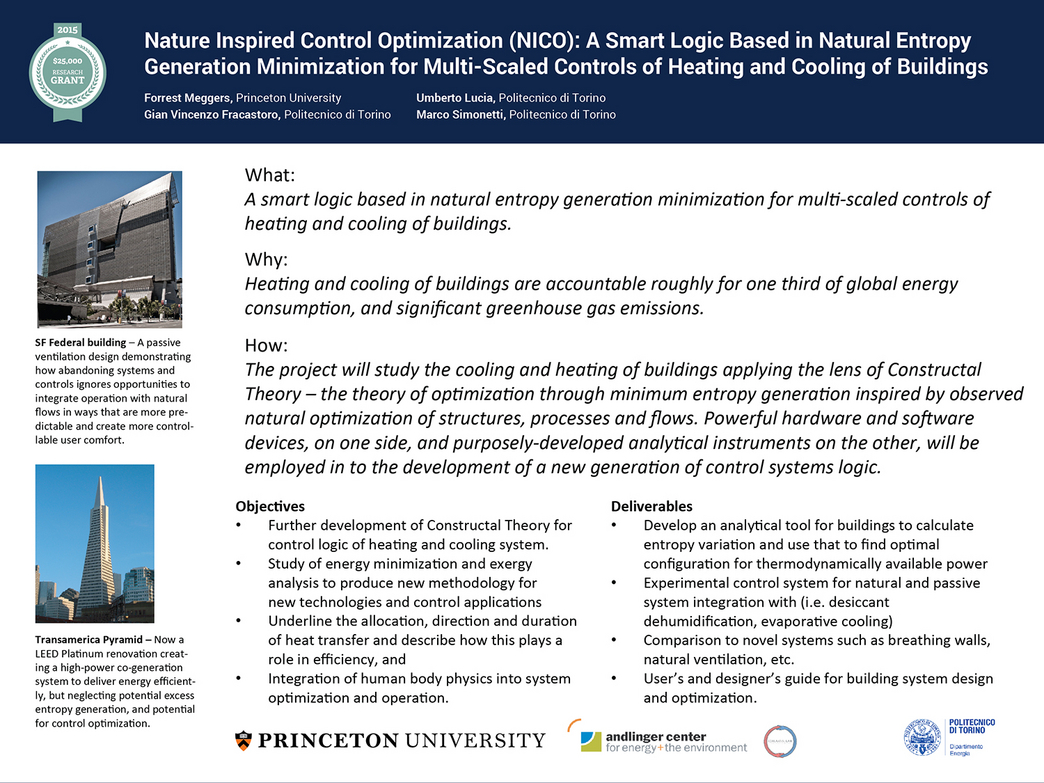Assistant Professor Forrest Meggers has won a 2015 Siebel Energy Institute grant for his research into advanced energy systems.
The Siebel Energy Institute is a consortium for innovative and collaborative energy research. The Institute funds cooperative and innovative research grants in data analytics, including statistical analysis and machine learning, to accelerate advancements in the safety, security, reliability, efficiency and environmental integrity of modern energy systems.
Meggers' project, "Nature Inspired Control Optimization (NICO): A Smart Logic Based in Natural Entropy Generation Minimization for Multi-Scaled Controls of Heating and Cooling of Buildings, studies the cooling and heating of buildings by applying the lens of constructal theory.
Project Abstract:
The recent evolution of information technologies has greatly extended control and measurement capabilities in the field of cooling/heating. However, this has led to an all brawn, no brains dilemma, in the sense that possibilities and current deployments greatly outnumber consolidated useful applications. Thermodynamic optimization and constructal theory has shown so far that time and space structures in engineering play the main role towards the maximum efficiency. Maximum efficiency is critical for a low-carbon emitting society, a sustainable energy future and affordable equilibrium with nature. Heating and cooling of buildings are accountable for roughly one third of global energy consumption. The project will study the cooling and heating of buildings applying the lens of constructal theory – the theory of optimization through minimum entropy generation inspired by observed natural optimization of structures and processes. Powerful hardware and software devices, on one side, and purposely-developed analytical instruments on the other, will be employed into the development of a new generation of control systems logic. The project aims to develop a multi-scaled distributed intelligent system. If many buildings control systems (or BMS, building management system) are linked in a network, and they ought to be, a district or city logic could emerge – a logic optimizing not the single building functioning, but the net one, based on the district energy structure.
For additional information, see the The New York Times article from August 4.
Cover photo: The CSIRO Energy Transformed flagship is working on ways to use the Sun's energy to cool buildings. Solar cooling utilises heat from solar thermal collectors to power a thermally-driven cooling process (Photographer: Dean Beletich, 25 November 2009). http://www.scienceimage.csiro.au/image/10749

